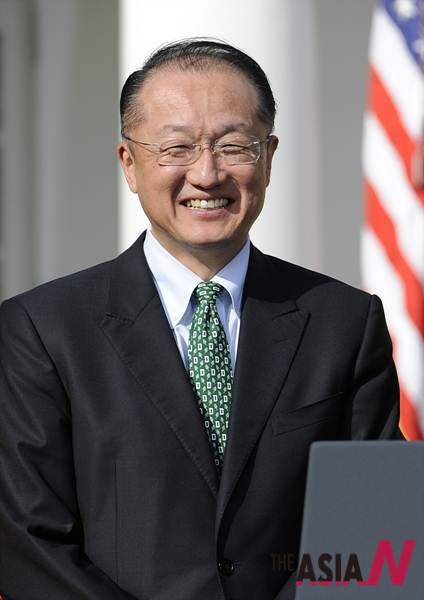Jim Yong Kim deserves being head of World Bank
On April 16, Jim Yong Kim, President of Dartmouth College, was elected as the next president of the World Bank. He was elected over Nigeria’s Finance Minister, Ngozi Okonjo-Iweala.
Kim was born in Seoul, South Korea in 1959. He immigrated to the US with his parents when he was five. His father was a dentist and a lecturer at the University of Iowa. His mother has a PhD in philosophy. Kim graduated from Brown University and Harvard Medical School, and in 1993, he obtained a degree in anthropology from Harvard.
In 1987, with his Harvard Medical School classmate, Paul Farmer, he founded a not-for-profit organization called Partners In Health, created to provide people in developing countries with health care services. The organization originally focused on tuberculosis and AIDS treatment in Haiti. In the last 10 years, it has expanded its activities beyond medical treatment, to the provision of clean water, food, education and to the fight against poverty. Now the organization has more than 14,000 employees in over 40 developing countries, like Peru and Mexico.
Kim worked at the World Health Organization as director of the HIV/AIDS department until 2004. Until 2009 he was Chair of the Department of Global Health and Social Medicine at Harvard Medical School. In 2009, he became the first Asian American president of an Ivy League school, Dartmouth College. In April 16 of this year, Kim was elected as the first Asian American president of the World Bank.
The World Bank was founded in 1946. For the last 68 years, all of its 11 presidents have been Americans. Traditionally, the president of the World Bank has been the candidate nominated by the President of the United States (which has 15.85% of the total votes), and is supported by the European Union countries, while the president of the International Monetary Fund (IMF) was a candidate from Europe. However, at this year’s election, China, India, Brazil, Russia, and South Africa, as well as many African and South American countries opposed Kim. These countries claimed that since the World Bank’s main purpose was to fight poverty in developing countries, its president should come from a developing country. They strongly supported Ngozi Okonjo-Iweala for president. Okonjo-Iweala is also a Harvard graduate, with a PhD in regional economic development from MIT. As Finance Minister of Nigeria, she was highly praised for successfully reducing the national debt and raising the national credit rating.
President Obama supported Jim Yong Kim over several other possible candidates including Susan Rice, United States Ambassador to the United Nations; John Kerry, Senator of Massachusetts; and Lawrence Summers, former Harvard University President and Chief Economist of the World Bank. As an Asian American, Kim may have been chosen as a candidate to appeal to the sentiment of the developing countries. Kim himself has repeatedly emphasized his humble origins and his roots in Korea.
“I was born in in a developing country. Korea was a very poor country, and both my parents were refugees during the war. I studied Korean economic development for my Ph.D. dissertation. And I’ve worked for years trying to help countries achieve the same economic growth I saw in Korea. The conventional wisdom was that Korea would never grow….Look at what they’ve done.”(“Why Jim Yong Kim Wants to Run the World Bank”, New York Times, April 12, 2012.)
Still, there were many doubts about Kim’s candidacy, since he is a medical doctor and anthropologist, not an economist or finance expert. So far, all of the former World Bank presidents have been politicians or economists or finance experts. It is also true that the World Bank has lost sight of its orginal goal of fighting poverty worldwide. Therefore, someone like Jim Yong Kim, who has been at the forefront of fighting poverty and disease around the world, may have a more appropriate background as the leader of the World Bank.
Ban Ki Moon, the Secretary-General of the United Nations, is also from Boston and Harvard. I hope there will be more people like Ban Ki Moon and Jim Yong Kim so that there can be more contributions to world peace.
*Some information in this column is from the websites of Partners In Health, Harvard University, and Dartmouth College.


























































